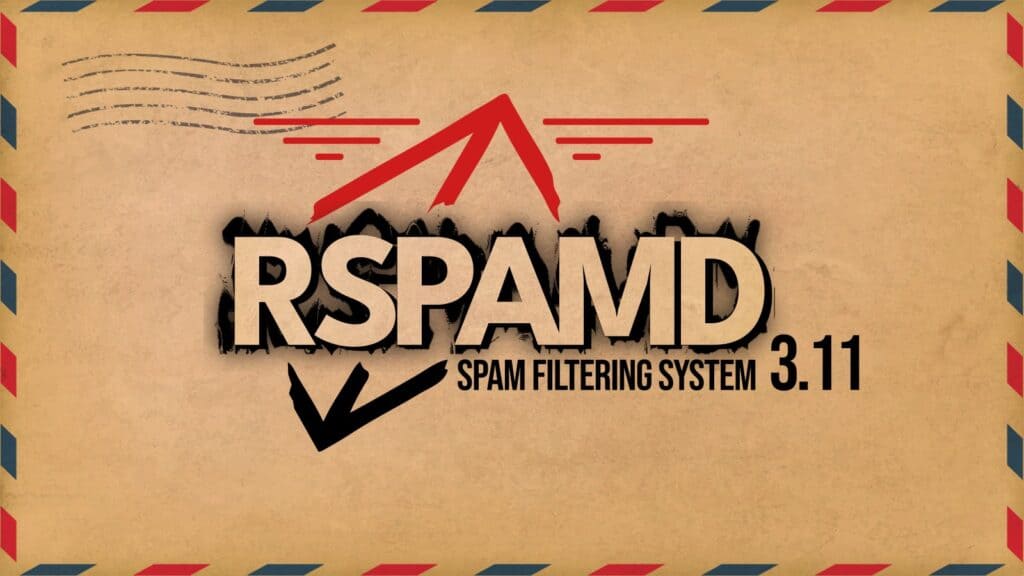Over two months after its previous 3.10 release, Rspamd, a free and open-source advanced spam filtering system widely recognized for its efficiency and flexibility in managing email spam through various modules and algorithms, released its latest update, 3.11.
Favored for its performance and low resource usage, it is typically used with MTAs like Postfix or Exim to provide real-time spam filtering as a highly efficient solution in the ongoing battle against spam.
Perhaps the most noteworthy advancement in the new version is the comprehensive overhaul of its Elasticsearch and OpenSearch integration. Now supporting Elasticsearch 8 and OpenSearch 2, this update embraces a more future-proof approach.
Not only can administrators benefit from modern index management with automated retention policies, but they will also find improved data organization and an updated configuration format, making it easier to configure and maintain Rspamd within their existing infrastructure.
At the same time, these changes significantly enhance compatibility with cutting-edge Elasticsearch security features. However, because the upgrades are incompatible backward, administrators should carefully review their Elasticsearch settings before moving forward.
Smoothly building upon earlier security measures, the new release introduces powerful ratelimiting capabilities. By employing an LRU cache for tracking recent ratelimit buckets and offering new management utilities, Rspamd 3.11 grants administrators tighter control over message flow and more precise monitoring via the rspamadm command-line tool.
In a similarly forward-looking move, Rspamd now replaces its previous fastutf library with simdutf. This choice yields superior performance across various CPU architectures, offers better support for non-x86 platforms, and improves UTF-8 processing capabilities. The result is faster processing times and a more responsive environment for handling diverse email traffic.
Email administrators will also appreciate a series of refinements aimed at message handling and privacy. Rspamd 3.11 introduces new header processing controls, enabling include/exclude logic that grants greater flexibility in managing headers.
Additionally, smarter upstream selection with more intelligent address rotation ensures better load distribution and reliability. For those with heightened privacy concerns, new message anonymization tools have been introduced, along with a rspamadm mime strip command for secure attachment handling.
On the fixes and patching front, Rspamd 3.11 leaves no stone unturned. The release addresses multiple security and functionality issues, including major RFC 2047 header encoding improvements, strengthened fuzzy storage security through dynamic key handling, and enhanced DNS limit controls in SPF processing.
By reducing false positives in phishing detection and correcting DMARC structured header encoding, Rspamd further refines its accuracy, helping users spend less time on false alarms.
The web interface now includes a redesigned symbol description system, improved hover functionality, and upgraded keyboard navigation for those who prefer a graphical overview of their spam filtering operations.
Rspamd 3.11 also provides administrators with new organizational tools. The introduction of the lua.local.d folder gives users a convenient way to structure and manage configurations.
Alongside this addition, extended configuration options and better documentation exemplify the team’s commitment to ease-of-use. Whether you are new to Rspamd or a seasoned veteran, the more flexible configuration model helps streamline maintenance and operation.
Behind the scenes, various optimizations significantly enhance performance. Improvements in RBL checking logic, refined multimap text part processing, and faster GPT module response parsing work together to create a leaner, more efficient spam filtering engine.
Moreover, improved memory management and resource utilization further ensure that Rspamd remains a top choice for those who value both scalability and speed.
As with any substantial release, carefully reviewing and testing existing configurations is highly recommended. Users should focus on Elasticsearch/OpenSearch settings, examine their header processing logic, and double-check custom scripts interacting with the new ratelimiting features.
For additional information about all novelties in Rspamd 3.11, refer to the project’s release announcement or view the full changelog.
